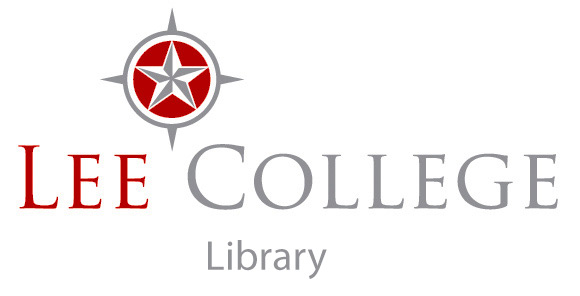CREDITS
Teaching Study Skills
-
* 100 Activities for Teaching Study Skills by 100 Activities for Teaching Study Skills is a sourcebook of activities for study skills tutors, teachers and support staff. This practical, user-friendly guide is designed to complement your existing study skills materials, and provide innovative and imaginative ways for you to motivate and engage your students. Activities include: Study preparation and time management Reading, writing and listening Independent study and group-work Dissertations, reports and projects Critical and creative thinking Revision, examinations and tests. All activities contain clear guidance about the purpose, level and type of activity, along with a range of discussion notes that signpost key issues and research insights. Students are encouraged to reflect on and develop their study skills, while connecting them to subject content and the process of learning, so that they become more motivated, enhance their learning and increase their chances of success.
Call Number: LB2395 .D35 2019 -
* Teach Students How to Learn by Co-published with and Miriam, a freshman Calculus student at Louisiana State University, made 37.5% on her first exam but 83% and 93% on the next two. Matt, a first year General Chemistry student at the University of Utah, scored 65% and 55% on his first two exams and 95% on his third--These are representative of thousands of students who decisively improved their grades by acting on the advice described in this book. What is preventing your students from performing according to expectations? Saundra McGuire offers a simple but profound answer: If you teach students how to learn and give them simple, straightforward strategies to use, they can significantly increase their learning and performance. For over a decade Saundra McGuire has been acclaimed for her presentations and workshops on metacognition and student learning because the tools and strategies she shares have enabled faculty to facilitate dramatic improvements in student learning and success. This book encapsulates the model and ideas she has developed in the past fifteen years, ideas that are being adopted by an increasing number of faculty with considerable effect. The methods she proposes do not require restructuring courses or an inordinate amount of time to teach. They can often be accomplished in a single session, transforming students from memorizers and regurgitators to students who begin to think critically and take responsibility for their own learning. Saundra McGuire takes the reader sequentially through the ideas and strategies that students need to understand and implement. First, she demonstrates how introducing students to metacognition and Bloom's Taxonomy reveals to them the importance of understanding how they learn and provides the lens through which they can view learning activities and measure their intellectual growth. Next, she presents a specific study system that can quickly empower students to maximize their learning. Then, she addresses the importance of dealing with emotion, attitudes, and motivation by suggesting ways to change students' mindsets about ability and by providing a range of strategies to boost motivation and learning; finally, she offers guidance to faculty on partnering with campus learning centers. She pays particular attention to academically unprepared students, noting that the strategies she offers for this particular population are equally beneficial for all students. While stressing that there are many ways toteach effectively, and that readers can be flexible in picking and choosingamong the strategies she presents, Saundra McGuire offers the reader astep-by-step process for delivering the key messages of the book to students inas little as 50 minutes. Free onlinesupplementsprovide three slide sets and a sample video lecture. This book is written primarily for faculty but will be equally useful for TAs,tutors, and learning center professionals. For readers with no background ineducation or cognitive psychology, the book avoids jargon and esoteric theory.
Call Number: LB 1025.3 .M356 2015
Study Stills At College
-
* Academic Success by This hands-on book introduces students to the demands of university study in a clear and accessible way and helps them to understand what is expected of them. It helps students to develop the core skills they need to succeed at university, and gives guidance on the key forms of academic writing, including essays, reports, reflective assignments and exam papers. It shows students how to recognise opinions, positions and bias in academic texts from a range of genres, develop their own 'voice' and refer to others' ideas in an appropriate way. It also features authentic examples of academic texts and engaging activities throughout to aid understanding. Packed with practical guidance and self-study activities, this book will be an essential resource for all students new to university-level study.
Call Number: LB2395 .B73 2019 -
-
* Beat Your Writer′s Block by
Call Number: PE1408 .E97 2020 -
* How to Be a Successful Student by
Call Number: LB2395 .M42 2019 -
* Manage Your Money by
Call Number: HG179 .S63 2019 -
* Manage Your Time by
Call Number: LB2395.4 .R33 2021 -
* Pass Your Exam by
Call Number: LB2343.32 .A5477 2020 -
* Polish Your Academic Writing by
Call Number: LB2369 .C65 2020 -
* Read Critically by
Call Number: LB2395 .B37388 2020 -
* Simplify Your Study by
Call Number: LB2395 .L53 2020 -
* Study with Me by
Call Number: LB1049 .S466 2019 -
* Work Well in Groups by
Call Number: LB1032 .H67 2020 -
* Write Your Lab Report by
Call Number: T11 .H675 2020
Study Skills Tutorials
-
College Success Skills Database
- This includes database provides information on the following topics: Organizational Strategies, Classroom Success, Information Literacy, Getting Academic Support, & Personal Success Skills.
